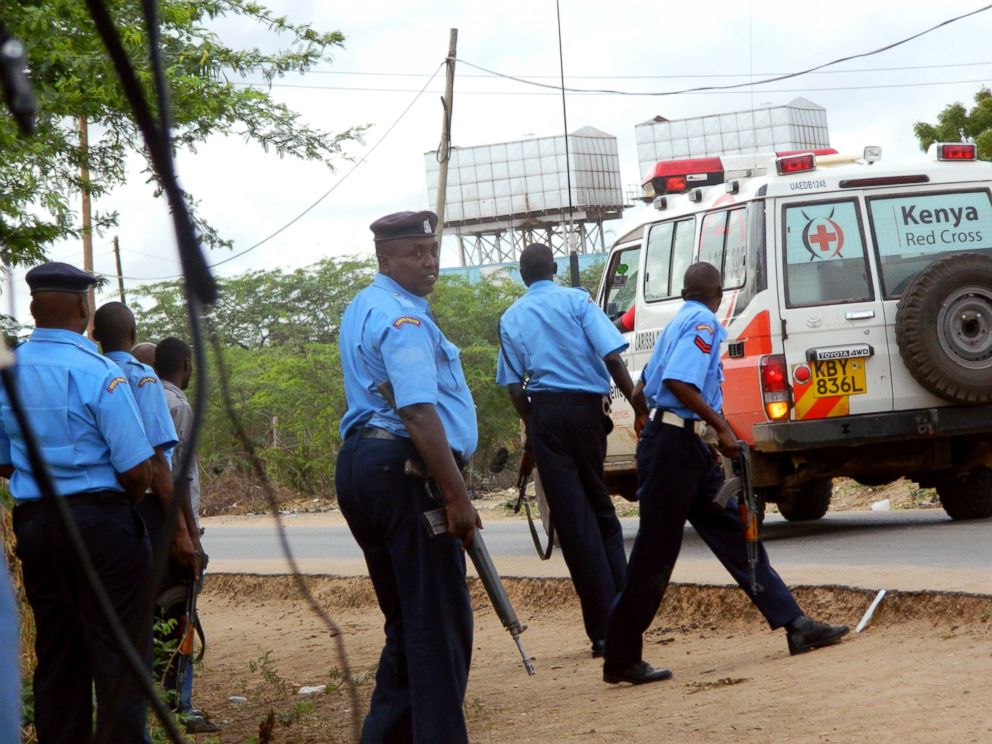A Kenyan court has granted police permission to detain Kithuka Kimunyi, the man accused of fatally stabbing a presidential guard outside the State House in Nairobi, for 14 days as investigations into the shocking attack continue. The suspect, who reportedly claimed that he was “sent by the devil,” will undergo a mental health evaluation as part of the ongoing inquiry.
The incident, which occurred on Monday morning, has sent shockwaves across the country, raising serious questions about national security and access control at one of Kenya’s most heavily guarded locations — the official office and residence of President William Ruto. Authorities confirmed that the attacker approached the main gate of the State House disguised as a homeless person before launching a sudden and deadly assault on a security officer.
According to police reports, the suspect was armed with a bow and arrow, which he used to stab Ramadhan Hamisi Matanka, a State House security guard, in the chest. Matanka was immediately rushed to a nearby hospital, where he was pronounced dead from his injuries. Officers on duty quickly overpowered and arrested the suspect at the scene, preventing any further harm.
During his court appearance on Tuesday, Kimunyi appeared visibly injured and was seen limping as he entered the courtroom. He claimed to have sustained a leg fracture during his arrest, prompting Judge Christine Njagi to order that he receive medical treatment before being taken for psychiatric assessment. The court granted the police’s request to hold the suspect for 14 more days to allow for detailed investigations, including mental evaluation, background checks, and crime scene analysis.
The investigating officer told the court that the suspect’s state of mind needs to be properly examined before formal charges can be filed, noting that his claim of being influenced by “the devil” raises concerns about his psychological stability and potential motive. Investigators are also trying to determine whether the attack was premeditated, and if the suspect had any accomplices or links to extremist groups.
Police sources revealed that preliminary findings suggest the suspect acted alone, though the manner in which he approached the high-security area undetected has sparked outrage and debate over security lapses at the presidential compound. The State House, which serves as the working office of the president, is typically secured by a specialized elite police unit trained to handle high-level threats.
President William Ruto was reportedly inside the State House when the attack took place but remained unharmed. The Office of the President has not yet released an official statement, though insiders confirmed that the presidential security team has since launched a comprehensive review of access procedures and perimeter security protocols.
Public reaction to the incident has been intense, with many Kenyans expressing alarm over the breach. Social media platforms were flooded with messages questioning how a man posing as a homeless person could get close enough to attack a guard at such a heavily fortified site. Security analysts have described the incident as a “major intelligence failure”, urging the government to tighten surveillance and strengthen guard screening processes at all critical state facilities.
The Directorate of Criminal Investigations (DCI) has since taken over the case, and a multi-agency team including counterterrorism experts and psychological evaluators has been assembled to assess the suspect’s mental condition and motives. Officials have also hinted that new security measures could be rolled out nationwide to prevent a recurrence of such incidents.
As investigations continue, authorities are working to reassure the public that the State House remains secure, and that the tragic loss of Officer Ramadhan Hamisi Matanka will not be in vain. His colleagues described him as a dedicated and disciplined officer, committed to his duty of protecting the country’s highest office.
The court is expected to reconvene after the 14-day detention period, by which time police will present findings from their investigation and decide on the formal charges to be filed against the suspect.
The incident has once again placed the spotlight on Kenya’s internal security preparedness, particularly at critical national installations. Analysts note that the attack serves as a grim reminder of the need for constant vigilance, improved surveillance systems, and robust mental health monitoring of individuals displaying erratic or violent behavior in public spaces.














Leave a comment